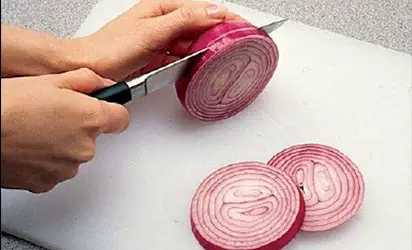Food experts have recommended against storing some items in the refrigerator or freezer so as to avoid food poisoning. According to a recent study, storing onions, garlic, and potatoes in the refrigerator may cause the formation of hazardous chemicals.
While more research is required, scientists warn against refrigerating these vegetables. Jhanvi Sanghvi, a clinical nutritionist and influencer from India, warns that storing various foods, particularly bananas, in these conditions might stimulate the growth of hazardous moulds and mycotoxins, which are deadly substances.
In addition to harmful food storage, Sanghvi highlights items that deteriorate in the refrigerator. She notes that wetness on onions provides an ideal home for fungi, causing vomiting, stomach cramps, and diarrhoea when ingested. Instead, onions should be stored in a cool, dark, and dry location, such as a closet.
Garlic presents similar risks when refrigerated.Garlic should be kept away from the refrigerator and other cold storage areas since it germinates when exposed to cold.
This means that storing garlic in the refrigerator is a bad idea since it will sprout, and Sanghvi warns that refrigeration can cause it to grow rubbery, lose flavour, and turn bitter. It can also produce dangerous moulds. Potatoes can also offer dangers. Refrigerating them converts their starches into sugars, resulting in a sweeter flavour and a gritty texture.
Cooking these modified potatoes at high heats may result in the production of acrylamide, a potentially hazardous chemical. The link between raw potatoes and cancer risk is debatable, however it is thought that low temperatures produce additional sugars, which can contribute to acrylamide when cooked.
The Food Standards Agency recently recommended that potatoes can be stored in the refrigerator or in a cold, dry spot. Professor Thomas Sanders of King’s College London highlights that acrylamide occurs at high temperatures during operations such as deep frying or roasting, and that soaking or blanching potatoes prior to cooking can help limit its creation.
Bananas should also be stored at normal temperature, as cold can cause them to turn brown and mushy. The coolness in the fridge inhibits the enzymes that cause ripening, bringing the process to a halt.
When exposed to freezing temperatures, the banana cell walls degrade, releasing enzymes that cause the skin to darken. Bananas should be kept at room temperature on the counter until they reach the proper ripeness.
Ginger also does better outside the fridge; refrigeration can dry it out and dull its flavour, making it less effective in cooking. Ginger should be stored in a cool, dark, and well-ventilated environment to maintain quality and prevent spoiling.











